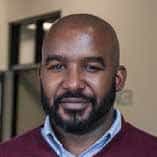
One of the themes of the Bible is the idea of giving testimony, the act of sharing how God positively impacts life experiences.
Psalm 66 clearly fits into this theme of testimony sharing, but the testimony shared was not simply from a single vantage point. In Psalm 66 we learn that the act of testimony sharing and hearing was not only for the benefit of the person testifying but also for the people that would hear it because giving and hearing testimony formed a circle of faith that could provide consistent hope to God’s children.

Terrell Carter
Psalm 66 is a psalm of praise and worship that incorporated three perspectives. It was written first from the vantage point that all creation and people should praise God (vs. 1-4). Through remembering the corporate history of the Exodus, the psalm then expressed Israel’s need to praise God due to God’s consistent goodness towards them (vs. 5-12). Finally, the psalm highlighted the writer’s desire to praise God publicly
for God’s goodness on a personal level (vs. 13-20).
Throughout the psalm, the testimony offered about God was framed around the idea that because one thing was true about God’s actions in one area, then another thing would also be true in a different area. For example, the writer framed God’s goodness through the idea that because God caused something positive to occur in the past, a person could expect that God would also cause something positive to occur in the future. Since God had allowed their ancestors to experience deliverance from Egypt through the Exodus, the readers could anticipate that God would deliver them from their current tribulations.
Another technique used by the writer was to contrast the ideas of ‘listening’ and ‘speaking’ and the impact that each act had on them as individuals and as a group. The psalmist said, “Listen to what I’m telling you about God and then speak praises about God’s goodness.” There is a clear cycle of “listen to what is being said about God’s faithfulness and respond with your own faithfulness towards God.”
If I am understanding the psalmist correctly, the practice of testimony sharing can be somewhat circular. It can begin with an individual but then is picked up and affirmed by the group, which benefits the group. Or it can begin with the group but then get picked up and affirmed by an individual, which benefits the individual.
 I think what the writer was saying was that the act of testimony sharing, the act of personally voicing praise and listening to others offer praise for God’s goodness, is an important practice for God’s children to participate in. But the testimony sharing should not only be about listening. It should lead to actions that either reiterate faith in God or lead to faith being strengthened in the lives of God’s children.
I think what the writer was saying was that the act of testimony sharing, the act of personally voicing praise and listening to others offer praise for God’s goodness, is an important practice for God’s children to participate in. But the testimony sharing should not only be about listening. It should lead to actions that either reiterate faith in God or lead to faith being strengthened in the lives of God’s children.
In light of this psalm, I think that a question we all could consider is what has God done for you that has shaped your faith, and how do you plan to express it for others to be encouraged? I ask this question because I think the psalm shows us that although God’s actions may occur for one person, those actions are not only for that individual solely, but for the benefit of the whole community’s faith.
Another question could be what is our corporate testimony? What have we all seen God do, and how can we express our common experience so others can come to lean on the faithfulness of God? Although God’s actions may occur within a community, they are not only for the benefit of the community, but for the benefit of individual members as well.
Terrell Carter is vice president of community life and chief diversity officer at Greenville University in Greenville, Illinois, community team leader for Churchnet, and pastor of Webster Groves Baptist Church in Webster Groves, Missouri.





